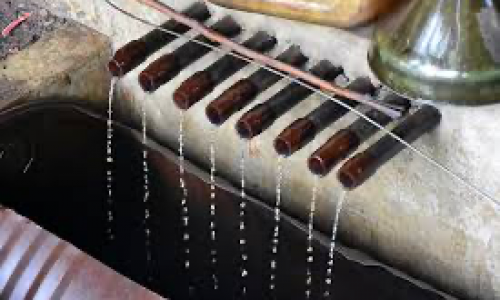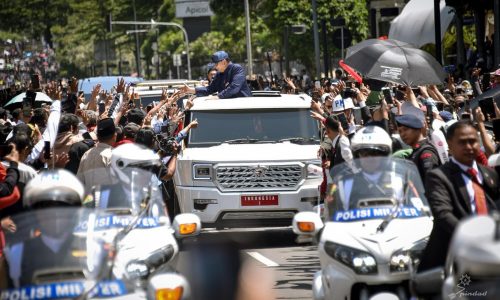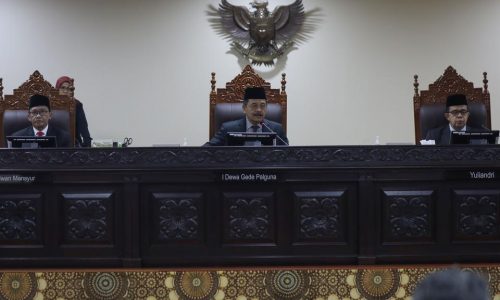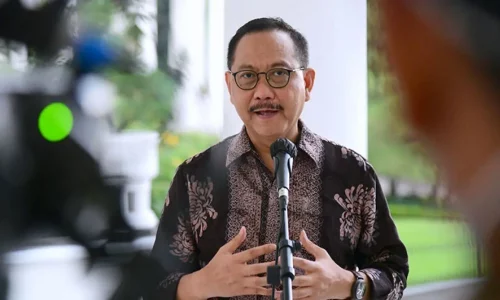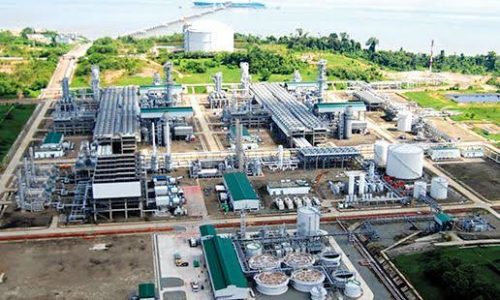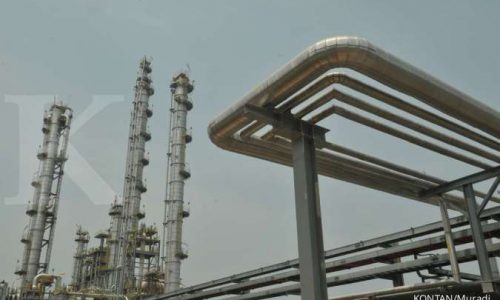Foreign direct investment was initiated during the colonial era and future Indonesian President Suharto Soeharto saw it as an opportunity to keep the economy moving.
Two months after the military coup which deposed Sukarno in 1965, the CEO of Freeport, Langbourne Williams, informed Freeport geologists Forbes Wilson of the good news regarding Ertsbeg negotiation that would start soon. He was sure it would go smoothly, relying on Texaco’s executive Julius Tahija’s firm connection with Soeharto, whom they considered a potential president.
In April 1965, Freeport had received the green light to mine in Ertsberg, Papua, but the negotiation was dragged for long since first President Soekarno forbade foreign investment. When the political situation showed a glimpse of the end of Soekarno’s reign, Freeport’s next move went unwavering, moreover, they have received a loan worth USD 60 million from American funding institutions. In April 1967, three months after the enactment of the Foreign Investment Law (UU PMA) No 1/1967, Freeport Sulphur Inc. signed a contract to explore and increase gold and copper reserves in Irian Jaya.
The contract made Freeport the first-ever foreign company to sign a contract with the Indonesian government. As Denise Leith wrote in The Politics of Power: Freeport in Suharto’s Indonesia, it became the only company to sign a contract under such extraordinary circumstances, by the fact that it was done by the chairman of the Ampera Cabinet, Soeharto, instead of the President. In addition to that, the concession area (West Irian) was also still in dispute.
Moreover, the contract gave out a generous tax concession for Freeport. According to the condition within the contract, Freeport obtained a tax-free period for 3 years and 35% of tax concession for the following 7 years, and was exempted from any kind of tax and royalty other than the 5% sales tax.
“But as soon as the ‘first generation’ contract was signed, the government realized that the contract needed to be revised so as to provide economic benefits for Indonesia,” said Mohammad Sadli, who was then the Minister of Mining, in his book Pelaku Berkisah with editor Thee Kian Wie. Sadli later became a member of President Soeharto’s economic advisory team. “Therefore, the ‘second generation’ contracts were made more restrictive and less profitable for foreign investors, including for the Canadian company, Inco, which mined nickel in Soroako, South Sulawesi.”
The PMA Law, a newly legal product created during the transition of national leadership, became one of Soeharto’s government’s strategies in attracting foreign investment to restore the national economy.
FDI in colonial era
The Agrarian Law in 1870 allowed foreign capital in the plantation sector, attracting more European executives. The number of plantations increased since the opening of the Suez Canal in 1869. When the demand for rubber in the world spiked up, the business sector was also broadened into mining and banking. The foreign investment value in the Dutch East Indies in 1930 reached up to GULDEN 4 billion.
However, the investment was put in halt during the Japanese occupation. After independence, the government started to be concerned on how to recover the economic situation. The spirit of independence was held up high in the utmost thoughts and policies, including the matter of foreign capital. Economic policymakers in the early days of independence were deeply enticed by the ideals of the socialists. They refused capitalism by associating it to the colonial power. In fact, many nationalists interpreted “socialism” as Indonesianisasi “Indonesianization” or Pribumisasi “Pribumization” (indigenization), wrote Thee Kian Wie.
The Economic Urgency Plan, which was proposed by the Minister of Trade and Industry Soemitro Djojohadikusumo in 1951, was intended as an effort to encourage the industry as a driving force of the economy, hence also called as the Industrial Urgency Plan. Although the Natsir Cabinet was short-lived, the Economic Urgency Plan was used by the next three cabinets. The Wilopo Cabinet made it more detailed. It was stated, the industrial development target must be able to be independent of the foreign countries. Foreign companies might invest in industries other than mentioned as the key sectors, on the condition of working with national private companies.
However, the implementation was sporadic. During the progress assessment, Soemitro emphasized poor organization, incompetent management, lack of practical government administration and financial regulations, and the scarcity of engineers as causes for lack of progress.
The Economic Urgency Plan was later abolished in 1956 and replaced with Indonesia’s First Five-Year Development Plan. This new plan was eventually approved by Parliament two years later so that most of it had become irrelevant. On the other hand, in the same year, the Cabinet of Work (Kabinet Karya) under PM Djuanda issued Law No. 78/1958 concerning Foreign Investment. This law, which was drafted since 1953 and underwent several revisions, gradually attracted foreign investors. Nevertheless, the policy to nationalize Dutch companies made the law meaningless. Plus the unstable political and security situation made foreign investors reluctant to enter the Indonesian market.
The emergence of Government Regulation in Lieu of Acts No. 15/1960 which replaced the Law No. 78/1958 was meaningless. As a result of the confrontation with Malaysia, the Indonesian government had to once again nationalize capital from Malaysia and Britain, then the turn for American companies came in 1965.
Obstacles also came from the Indonesian Communist Party (PKI), which condemned the government’s policy of inviting foreign capital as a manifestation of Nekolim (Neocolonialism, Colonialism, Imperialism; a Soekarno-era term). And after the foreign policy heated up, many regulations were revoked.
Berkeley Mafia
Political changes after the 30 September Movement changed the direction of the Indonesian economy. Facing an urgent need to resolve a serious economic problem, Soeharto turned to a group of young economists from the Faculty of Economics, University of Indonesia (UI). They were Widjojo Nitisastro, Ali Wardhana, Mohammad Sadli, Subroto, and Emil Salim. Soeharto happened to know them when he took a course at the Army Command and General Staff School (Seskoad) in Bandung where they often came to lecture.
In January 1966, a number of economists at the University of Indonesia discussed the solution to economic and financial problems. In May, a similar discussion was held again. The suggestions emerged then became the economic policy of the Revised Dwikora Cabinet and influenced the formulations of the 1966 MPRS decree which became a milestone of the New Order.
The New Order’s commitment to solving economic problems was strengthened when the Army held an AD II Seminar in Bandung on August 25, 1966. Widjojo et al, placed in the Subcommittee on Economic Problems, were tasked with drafting a text on solutions to stabilize and rehabilitate the economy. The economists’ recommendations were accepted without prolonged discussion.
Soon after, on September 12, 1966, they were appointed as Personal Staff to the Chair of the Cabinet Presidium. When Soeharto officially assumed the position of President, they became the Presidential Economic Expert Team, with the addition of the Minister of Trade Sumitro Djojohadikusumo, Transportation Minister Frans Seda, and Bank Indonesia Governor Radius Prawiro.
The Team was responsible to follow the development of economic conditions, discuss economic problems, and submit economic considerations to the President whether requested or not, said Subroto said in “Begawan Ekonomi”, Kesan Para Sahabat tentang Widjojo Nitisastro (“Begawan Ekonomi”, Impressions of Friends about Widjojo Nitisastro).
The team was the key actor arranging the economic policies of the New Order. David Ransom, an American journalist, called them “Barkeley Mafias”, referring to their alma mater. In the article “Berkeley Mafia and Mass Murder in Indonesia”, published by Ramparts magazine, Ransom mentioned American involvement in the economic policies of the New Order. When Widjojo was confused preparing an economic stabilization plan, David Cole, an economist from Harvard, offered his hand. Similarly, when Sadli wanted to make a Foreign Investment Law; he received guidance from the United States Embassy. “At the beginning of September 1967, the economists succeeded in completing the design. And the generals were convinced of the benefits of the draft, “Ransom wrote.
With an open-door policy, foreign investment was a top priority for getting funds, in addition to foreign debt. Under the direction of the ‘technocrats’, another term for Soeharto’s economic advisors, efforts to liberalize the economy were realized. The Law No. 1/1967 was finally issued, after going through a heated debate in parliament. Its objectives were to attract foreign investors and to guarantee the safety of their investments in Indonesia. The government then formed a Foreign Investment Technical Team with chairman Mohammad Sadli.
They were tasked with gathering information about potential foreign investors and their investment plans. This information was then submitted to the cabinet and the decision was up whether to approve the planned investment or not. The technical team was also tasked to promote foreign investment in the country.
Law no. 1/1967 contained various incentives and guarantees to prospective foreign investors, including tax exemptions and guarantees of no nationalization unless deemed necessary for the national interest and with full compensation in accordance with international law. This open-door policy attracted new investors, especially from the mining and manufacturing sectors. Mentioned in the beginning, Freeport was the first to enter followed by mining and timber companies from a number of countries. Natural resources and cheap labor became an enchanting spell.
Since its enactment, the Law had received protests and strong criticism. In the mining sector, the foreign contracts were considered detrimental to the country due to the existence of a concession system, unbalanced profit-sharing, and tax relief for investors; not to mention the social impact for the community around the concession.
In the forestry sector, Forest Concession Rights (HPH) damaged the environment and social order of the local community. The technocrats were accused of making the Indonesian economy dependent on foreign aid and capital. These series of events resulted in economic inequality widened and at the same time conglomerates, predatory monopolies, and corruption were intensely developed. Thee Kian Wie, called the criticism unfair because critics did not see the gravity of the Indonesian economy in the late 1960s and Indonesia had little resources to rise on its own.
by M.F. Mukthi



